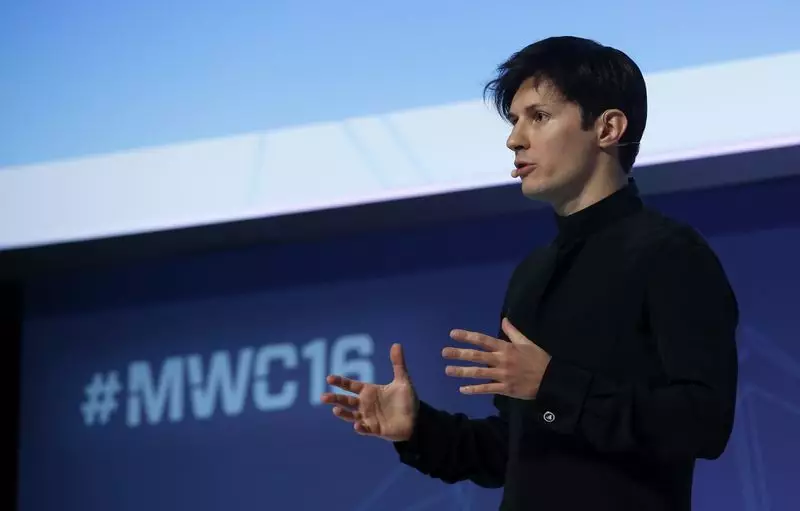In a remarkable and troubling episode, Pavel Durov, the billionaire creator of the Telegram messaging application, was arrested at Bourget Airport near Paris on Saturday evening. The incident, reported by TF1 TV and BFM TV, stems from a warrant issued as part of a preliminary investigation by French authorities. Durov’s arrest raises significant questions about the stature of Telegram, particularly its role as a platform for communication and the responsibilities that accompany its influence.
Durov, having previously fled Russia in 2014 due to governmental pressures surrounding freedom of speech on his social media platform VK, is no stranger to geopolitical tensions. His decision to establish Telegram in Dubai was partly a strategic move to ensure a level of autonomy from Russian authorities. Currently boasting around 900 million active users, Telegram has evolved into a vital channel for unfiltered news and political discourse, especially in the wake of the Ukraine war, where it has become a favored medium for both Russian and Ukrainian officials alike.
Since the onset of the conflict in Ukraine in 2022, Telegram has thrived as a controversial source of information, providing a platform for both the Ukrainian government’s communications and the Kremlin’s narrative. This duality illustrates the app’s critical role in modern communication, offering an avenue for dialogue that often wrangles with official narratives. However, this dynamic has also brought to light serious concerns regarding the spread of misinformation and the absence of stringent moderation.
The crux of the recent investigation seems to focus on the lack of moderation on Telegram, which has been criticized for facilitating criminal and extremist activities. French authorities are reportedly concerned that Telegram’s loose regulatory framework allows for unchecked propagation of illegal content. Durov’s response to governmental pressures has always emphasized the platform’s neutral stance, arguing vehemently against allowing it to be manipulated as an instrument of geopolitics. However, the rising scrutiny from Europe hints at a potential dichotomy between market freedom and societal responsibility.
The implications of Durov’s arrest reach far beyond individual circumstances. The incident stands as a point of contention within international relations, especially regarding how tech giants negotiate their spaces in various national jurisdictions. Following the arrest, the Russian government expressed its discontent, with representatives accusing France of acting oppressively. Mikhail Ulyanov, Russia’s representative to international organizations in Vienna, metaphorically alluded to the risks faced by those who engage in international information dynamics in countries steering towards authoritarianism.
Western perceptions of freedom and government oversight are polarized, and Durov’s circumstances underscore this rift. While many see regulatory actions as necessary for public safety and order, others view them as encroachments on digital freedoms. The Russian embassy in France reported an immediate intention to clarify Durov’s situation, further escalating diplomatic tensions.
As Telegram approaches its ambitious goal of reaching one billion users, the handling of the platform and its governance becomes increasingly pivotal. Durov’s ideologies emphasize the importance of a neutral online space, yet the pressures from both local governments and global entities illustrate the complexity involved in achieving this ideal in practice.
The Durov episode underscores a critical moment in the evolution of communication platforms. As users become aware of the societal implications tied to their online behaviors and the platforms they choose, the conversation about moderation, accountability, and censorship intensifies. In light of this, Telegram’s standing as a connector of societies may be put to the test as it navigates between governmental scrutiny and user autonomy.
Pavel Durov’s arrest at Bourget Airport is not merely a personal event; it is emblematic of the broader dilemmas facing digital communication today. As the global narrative becomes increasingly polarized, platforms like Telegram find themselves at a crossroads where they must reconcile their foundational ideals with external pressures. Whether Telegram can maintain its commitment to neutrality and user freedom amid growing governmental scrutiny will undoubtedly shape the app’s legacy and the future of digital discourse. As Durov himself contends, the stakes are monumental—not just for his platform, but for the essence of communication in an increasingly interconnected world.

